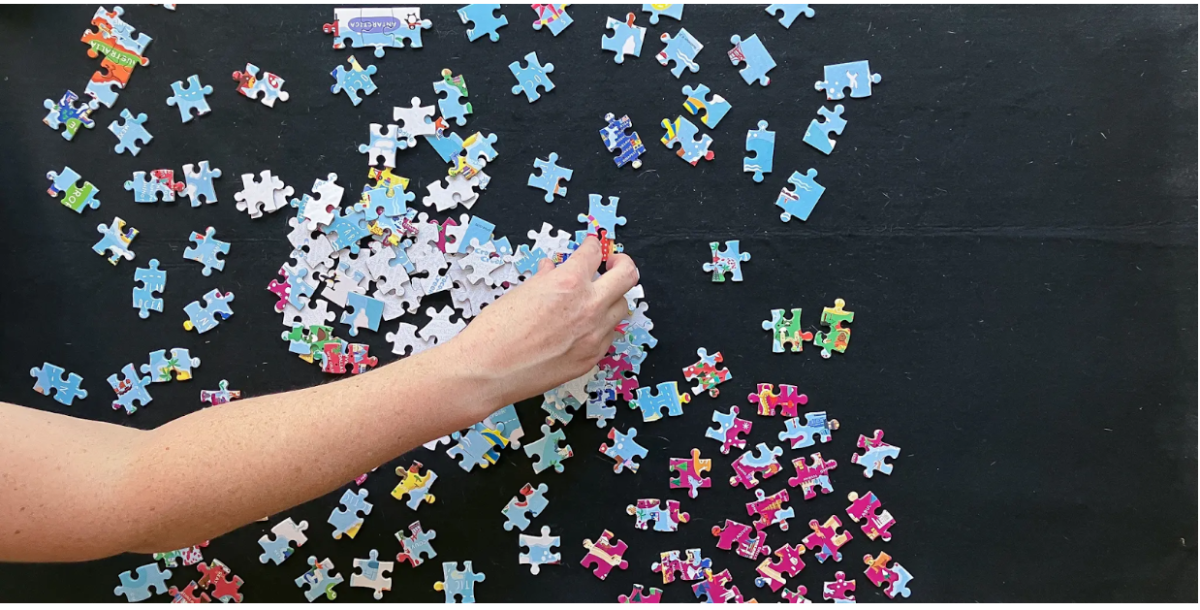People of all ages enjoy hundreds of different kinds of puzzles around the world. There are visual puzzles like Jigsaws and Rubik’s Cubes, word puzzles like crosswords and word searches, number puzzles like Sudoku, and so many others. Since it was first introduced as a form of entertainment in the 1700’s the jigsaw puzzle has grown in popularity among all ages, as their difficulty can be a simple four piece puzzle or more complex over one thousand pieces. However, beyond the enjoyment they provide, solving puzzles offers many short and long-term benefits.
Many people do not realize how much they gain from this seemingly simple activity. Two major short-term benefits of puzzles are their ability to shift a person’s mindset. First, solving puzzles requires sustained focus. When someone sits down to work on a puzzle, they direct all their attention to finding the right pieces, understanding how they fit, and recognizing their correct location. This deep state of concentration can enhance the puzzler’s attention span once they stop. For example, if someone has a big test to study for or a large project to complete, taking short breaks to work on a puzzle would help them maintain a focused state. Sophomore Ashley Sinkus explained “I like to do The New York Times mini puzzles in between classes or when I have free time throughout the school day. I feel like they give my brain a much needed boost.”
Additionally, puzzles have immediate stress relieving effects. The act of concentration on one single task can be almost meditative, helping to ease stress and anxiety. By losing themselves in a puzzle, people can momentarily depart from their daily worries, giving their minds time to rest and recharge.
Even more plentiful than the short-term effects of puzzling are the long term effects, some of which can last a lifetime. One major long term benefit of puzzling is improved memory and cognitive skills. This is because puzzles challenge the brain to recognize patterns and recall locations of a peace they may have seen earlier.
Overtime, puzzles become a workout for your brain. Studies have shown that because puzzles engage multiple cognitive functions, they may help prevent brain decline with age and even reduce the risk of some brain related diseases like Alzheimers. Sophomore Izzie Donnely offered “My grandmother has dementia and people say that puzzles are good for people with dementia even if they are super simple. Knowing this, when me and my family went to visit her for Christmas we bought a puzzle and did it together. Not only was this a way to spend quality time with my grandmother, it also provided her with great activity.”
A final benefit in the long run of doing puzzles is heightened patience and perseverance. Puzzles of greater size could take hours, days or even weeks to complete. This slow progress and lack of immediate gratification builds determination and resilience until the final piece is in place. This is why many schools and parents introduce puzzles to children at a young age in order to gain these very vital skills.
Puzzles offer so much more than entertainment–they train the brain in many ways, improve focus, reduce stress, and promote long term brain health and development. Whether it is a Jigsaw Puzzle app, or a huge 2000 piece, engaging with puzzles is a simple yet immensely effective and powerful way to boost your brain function–something your future self will undoubtedly thank you for.

































